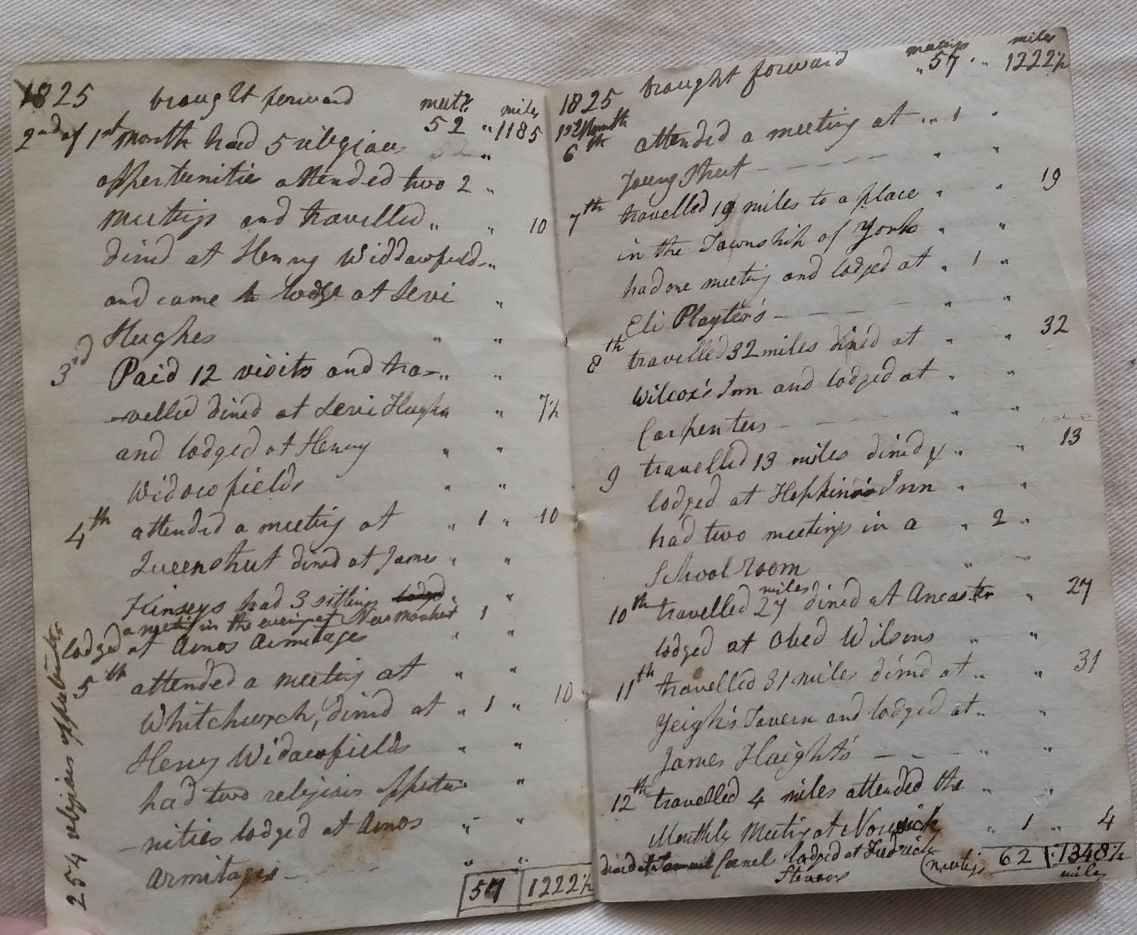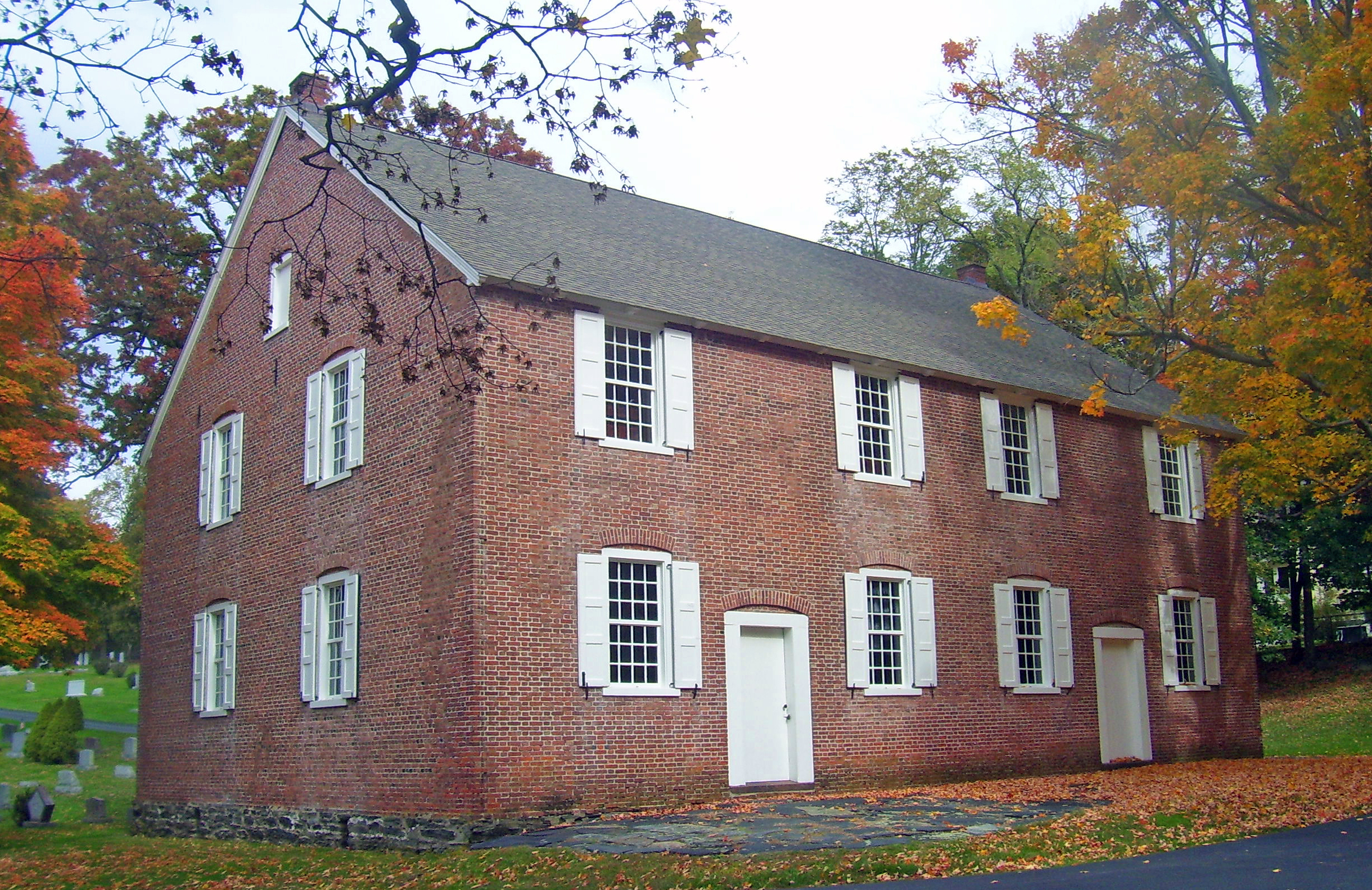Friends Historical Library (FHL) at Swarthmore College, PA, hosts one of the most extensive archives of early American Quaker meeting minute books and other documents to be found anywhere in North America.
All books were photographed in 1950 by Latter-day Saints in Salt Lake City and are of a very high quality.
FHL and CFHA have worked collaboratively for many years to provide improved access to the content of certain minute books. Of particular interest to Canadian Friends and researchers are the minute books which relate to the Nine Partners Monthly Meeting and those of its affiliated Preparative meetings located in New York state and adjacent area of Vermont, the Hudson River Valley and watershed.
These meetings were the source meetings for many of the earliest Quaker families to migrate to Upper Canada and establish new meetings in Adolphustown (1798), throughout Prince Edward County (West Lake Meetings) and later meetings found by Timothy Rogers at Pickering and Newmarket.
As a result of the collaboration, members of the CFHA transcription group have been able to complete and post on the CFHA website complete and searchable transcriptions of the major Nine Partners and affiliated Meetings. Minutes of Ferrisburg, PA are of particular interest as they include many references to Timothy Rogers.
More recently FHL has been able to provide digital images of three minute books of Muncy Monthly Meeting in Pennsylvania. These minute books provide many details of the removals to Upper Canada from the meeting located at Catawissa, PA. The Catawissa Meeting largely relocated to Uxbridge, Ontario and established the Uxbridge preparative meeting under Yonge Street Monthly Meeting in Newmarket, Ontario. Two of the Muncy / Catawissa books have been completely transcribed and posted on the CFHA website. Transcription of the third and longest minute book is ongoing and it is expected to be posted sometime next year.
Although the FHL holdings of Nine Partners Monthly Meeting have included additional minute books and documents, CFHA has not been able to provide transcriptions because neither the microfilm images nor the original documents had been digitized. We are pleased to announce that FHL has recently digitized additional material, including the earliest initial Nine Partners minutes and has provided images to CFHA.
Transcription Coordinator Randy Saylor has received these latest images and reports the following:
- Images 0001 – 0024 are of a births and deaths register 1810 – 1893
- Images 1025 – 1798 – 1898 are a marriage register 1798 – 1898 with a 6 page typed index at the end.
- Images 008 – 0234 are the Nine Partners Men’s Minutes 1769 to 1779 that we have been waiting for!! This will give us a great insight into the war years.
- Images 0235 – 546 are a minute book for the years 1820 – 1851
These new minute book images will allow us to learn more about how this meeting dealt with the onset of and duration of the American Revolution up to our existing transcriptions dating from 1779. We also expect to learn additional details of the complaint brought against Philip Dorland.
Please watch this space for further updates. Also please note that our new set of images provides us an opportunity to invite additional volunteer transcribers.
Transcribing can be a very rewarding experience and an excellent indoor activity as we approach the winter months.
We are seeking additional volunteer transcribers. If you are interested in joining the CFHA volunteer transcription team, please contact [email protected].
All of our current transcriptions can be viewed on our transcriptions page.






